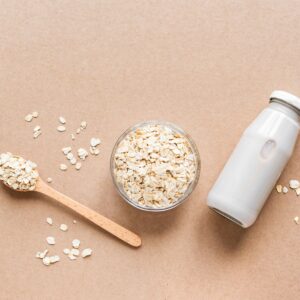Blog
Bad Habits that Can Destroy Your Gut
Gut health plays a vital role in enhancing our overall well-being. It’s not just about ensuring proper digestion and absorption but also maintaining a strong intestinal wall and a balanced microbial environment. This balance significantly impacts the performance and health of the intestines, which in turn reflects on the entire wellbeing.
Good gut health isn’t just about avoiding digestive issues like bloating, diarrhea, or constipation. It goes beyond that, influencing other bodily functions, particularly the immune system. With nearly 80% of the immune system located in the gut, any imbalance in gut health can lead to immune disorders, along with other negative effects on overall health.
Thus, it’s crucial to maintain our gut health through healthy daily habits and avoid harmful practices that can damage the gut and colon. In this context, we will explore the top ten harmful daily habits that can endanger our gut health in the short and long term, and how to avoid them to keep the digestive system balanced.
Here are the ten healthy habits that can destroy colon health:
1.Chronic Consumption of Apple Cider Vinegar:

Excessive and continuous use of organic apple cider vinegar or any other type of vinegar over time can lead to digestive problems such as ulcers and inflammation, and it may also harm dental health. Although apple cider vinegar has numerous benefits, such as improving digestion, reducing bloating, and helping with insulin resistance, cholesterol, and triglycerides, it should be used with caution and moderation.
The best way to use apple cider vinegar is for just five days each month or every two months to enhance stomach acidity and improve digestion without causing harm. For example, in Dr. Fajer Al-Jumairi’s treatment programs, apple cider vinegar is recommended for a period of ten days to two weeks maximum. After this, it is suggested to use it periodically and regularly to maintain its health benefits without overuse.
2.Practicing the keto lifestyle for a prolonged time:
Following a keto diet for a prolonged period can negatively affect gut health and the body as a whole, even though it has gained popularity as a fast way to lose weight. This diet, which focuses heavily on proteins and fats while reducing vegetables, fruits, and healthy starches, can be effective for short-term periods, such as a month or two. However, adopting it as a long-term lifestyle can cause multiple health problems.
First, the kidneys may suffer from the excessive consumption of proteins, which is common in the keto diet. Second, the lack of fruits and starchy vegetables in this diet can lead to drops in blood sugar levels, causing dizziness, extreme fatigue, and even fainting. Third, since the keto diet relies heavily on fats, long-term adherence can damage arteries and raise cholesterol levels, particularly LDL (bad cholesterol).
The keto diet, when not followed properly, often leads to a significant reduction in vegetable intake, especially non-starchy types, which lowers fiber and prebiotic consumption. This lack of dietary fiber, particularly inulin-type fructans found in foods like wheat (always try to choose the best wheat form options like sourdough wheat-based bread or organic wheat), onions, bananas, garlic, and leeks, can “starve” beneficial gut bacteria. These fibers are essential because they act as prebiotics, supporting the growth of healthy gut bacteria like Bifidobacteria, which are crucial for digestion, nutrient absorption, immune function, and producing B vitamins.
Inulin is especially beneficial for gut health, helping probiotics thrive and also supporting metabolic health by binding to cholesterol in the gut. However, the keto diet tends to be low in prebiotic fibers because it restricts carbohydrates, including fiber-rich foods such as whole grains, fruits, and legumes. Over time, this can weaken beneficial gut bacteria and negatively impact health.
It’s important to note that while wheat provides valuable prebiotic fiber, people with gluten intolerance should avoid wheat, barley, rye, and related products due to the gluten content.
In short, the keto diet can be beneficial in the short term, but following it for a long period without balance can lead to digestive and overall health issues. Instead, the best diet you can follow is the Mediterranean diet or the paleo diet which have a balance between carbohydrates protein carb fruits and vegetables.
3.Juice Detox Courses:
Juice detox courses, heavily promoted by many nutritionists and celebrities on social media, are harmful to the body and digestive system. These courses involve consuming only juices, such as carrot, orange, or green juices, for a week or two. However, the body cannot rely solely on these juices.
First, these juices contain large amounts of sugar, even if natural, which can feed harmful bacteria and fungi like Candida. This can be detrimental to individuals with issues like SIBO or irritable bowel syndrome. Second, these detox diets lack essential nutrients such as healthy fats, proteins, and fibers, resulting in severe nutrient deprivation and overall negative health effects.
Therefore, it’s better to use detox juices, such as green juice or beet juice, in limited quantities as part of a balanced and healthy diet rather than relying on them completely.
4.Misuse of Probiotics:
Using probiotics, or beneficial bacteria, incorrectly can negatively affect digestive health. Many people complain of bloating, gas, or discomfort when taking these supplements. It is essential to choose the correct dosage and the appropriate type of bacteria.
For people suffering from SIBO or irritable bowel syndrome, they should avoid using probiotics in the early stages of treatment. The gut in these cases is often overrun with harmful bacteria, and when beneficial bacteria are introduced, there may be a clash, increasing bloating and gas.
Moreover, it’s important to watch the dosage. The optimal maximum dosage typically ranges between 40 to 50 billion units of beneficial bacteria. Some people take doses as high as 100 billion or more, which can disrupt the natural bacterial balance in the gut. Hence, it’s vital to consult a specialist before starting probiotic use.
5.Overconsumption of Ready-Made Gluten-Free Products:
Although gluten-free products are often thought to be healthier, excessive consumption can harm digestive health. Many gluten-free products, such as bread and pasta, are often made from wheat ingredients with the gluten removed, but they contain many preservatives and artificial flavors.
If you’re following a gluten-free diet, it’s better to opt for naturally gluten-free foods like potatoes, rice, quinoa, or millet. Additionally, you can prepare gluten-free bread at home using almond or coconut flour instead of relying on ready-made products, which will help protect your digestive system.
6.Chronic Use of Senna:
Many people use senna as a natural laxative to treat constipation, and while occasional use is generally considered safe, prolonged use can lead to dependency. Over time, the colon muscles may become reliant on senna, impairing their ability to function normally. This can result in slowed colon motility, often referred to as “lazy colon,” which may contribute to chronic constipation. Therefore, it is better to follow a diet rich in fiber and drink enough water. If you need to stop using laxatives, it is important to do so gradually over the course of a week or two. Stopping suddenly may lead to severe sluggishness in the colon muscles, resulting in severe constipation.
7.Excessive Use of Artificial Sweeteners:

Excessive use of artificial sweeteners, commonly consumed by individuals following healthy diets or managing insulin resistance and diabetes, can negatively impact gut health. For instance, studies have shown that sweeteners like aspartame and saccharin may contribute to insulin resistance and have harmful effects on the digestive system. A healthier alternative would be opting for natural sweeteners such as monk fruit, allulose, or organic stevia.
8.Drinking Carbonated Water:
Although carbonated water is often considered a healthier alternative to sugary drinks, its high carbon dioxide content can lead to bloating and discomfort. The best option is to drink regular water, but it’s important to avoid consuming large amounts during meals, as this can cause digestive issues like heartburn. It’s generally better to drink water after meals. Note that, there’s no harm in enjoying carbonated water once or twice a week in moderation.
9.Eating Whole-Wheat Bread:
While whole-wheat bread is often viewed as a healthier choice, it is still high in starch and gluten, which can raise blood sugar and insulin levels. A better alternative is to choose keto bread or fermented sourdough bread. However, it’s important not to rely solely on sourdough bread every day. Instead, aim to enjoy it three to four times a week as part of a varied diet.
10.Relying on Oat Milk:

Oat milk is often considered a healthy alternative, but its high starch and sugar content can feed harmful bacteria. You can use instead almond or coconut milk or any type of nuts and seeds milk alternative that contain less carbohydrates and sugar content.
In summary, adopting healthy habits in a balanced and sustainable way is key to maintaining digestive health. It’s important to stay mindful of excessive or chronic use of certain foods or natural remedies. To learn more, check out Dr. Fajer Al-Jumairi’s YouTube channel for additional insights:

